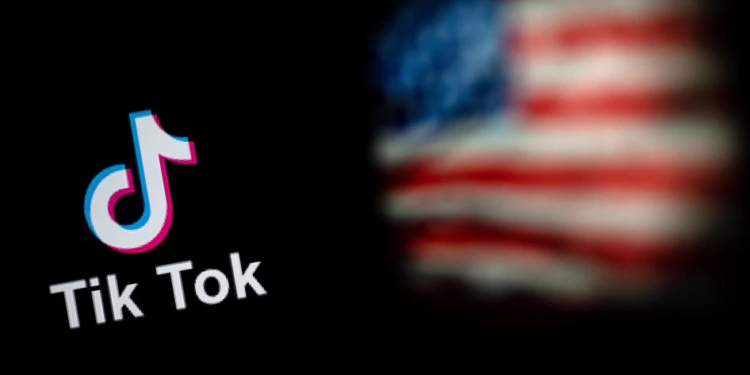In order to comply with a US Congress-ordered prohibition, the White House on Monday directed federal agencies 30 days to remove the Chinese-owned video-snippet sharing app TikTok from all government-issued devices.
In a message, Shalanda Young, director of the Office of Management and Budget, urged federal organizations to “delete and block installations” of the program on agency-owned or -operated IT devices as well as to “prohibit internet access” from such devices to the app within 30 days.
The millions of individual users of the wildly popular app in the United States and businesses not affiliated with the federal government are exempt from the ban.
Yet, the American Civil Liberties Union claims that a recently submitted bill in Congress would “essentially ban TikTok” in this nation (ACLU).
Jenna Leventoff, senior policy counsel for the ACLU, stated in a release that “Congress must not ban entire platforms and deprive Citizens of their fundamental right to freedom of speech and expression.”
“We have a right to use TikTok and other platforms to communicate with individuals throughout the nation and around the world about our thoughts, ideas, and opinions.”
TikTok, which is owned by Chinese internet company ByteDance, has drawn political attention because to worries that the Chinese Communist Party could use it for propaganda or espionage (CCP).
The corporation didn’t respond to the White House advice right away.
The restriction was criticized by China’s foreign ministry.
On Tuesday, spokeswoman Mao Ning said, “We firmly reject the improper behavior of the United States to generalize the concept of national security, abuse state authority, and arbitrarily suppress enterprises from other countries.”
The use of TikTok on equipment provided by the government is prohibited by a statute that US President Joe Biden approved last month. The US Senate and House of Representatives are similarly prohibited from using TikTok.
Since a Chinese balloon crossed into US airspace and was subsequently shot down, national security worries over alleged Chinese espionage have increased.
EU and Canada restrictions –
On Monday, the Canadian government outlawed TikTok on all of its phones and other gadgets, citing concerns over Beijing’s access to user data.
beginning on Tuesday, “The TikTok app will no longer be accessible on mobile devices provided by the government. Also, future downloads of the application by users of these devices will be prohibited “in a statement, the government.
The app was also prohibited from being used on European Commission hardware.
Accusations that TikTok transfers data or hands over authority to the Chinese government have been repeatedly refuted.
TikTok’s quick growth from a specialized video-sharing software to a major global social media force has drawn considerable criticism, especially due to its ties to China.
The company has consistently denied giving personal information to the Chinese government, but it was compelled to acknowledge ByteDance personnel in China had accessed Americans’ data.
By stating in June 2022 that it would keep all data on American users on US-based servers, TikTok has taken action to allay US concerns.
TikTok’s growth has not been slowed down by bans.
According to the marketing firm We Are Social, it is the sixth-most popular social platform in the world with more than one billion active members.
Although it doesn’t grow as quickly as its rivals among young people, such as Meta’s long-dominant trinity of Facebook, WhatsApp, and Instagram, it nevertheless outpaces them.




